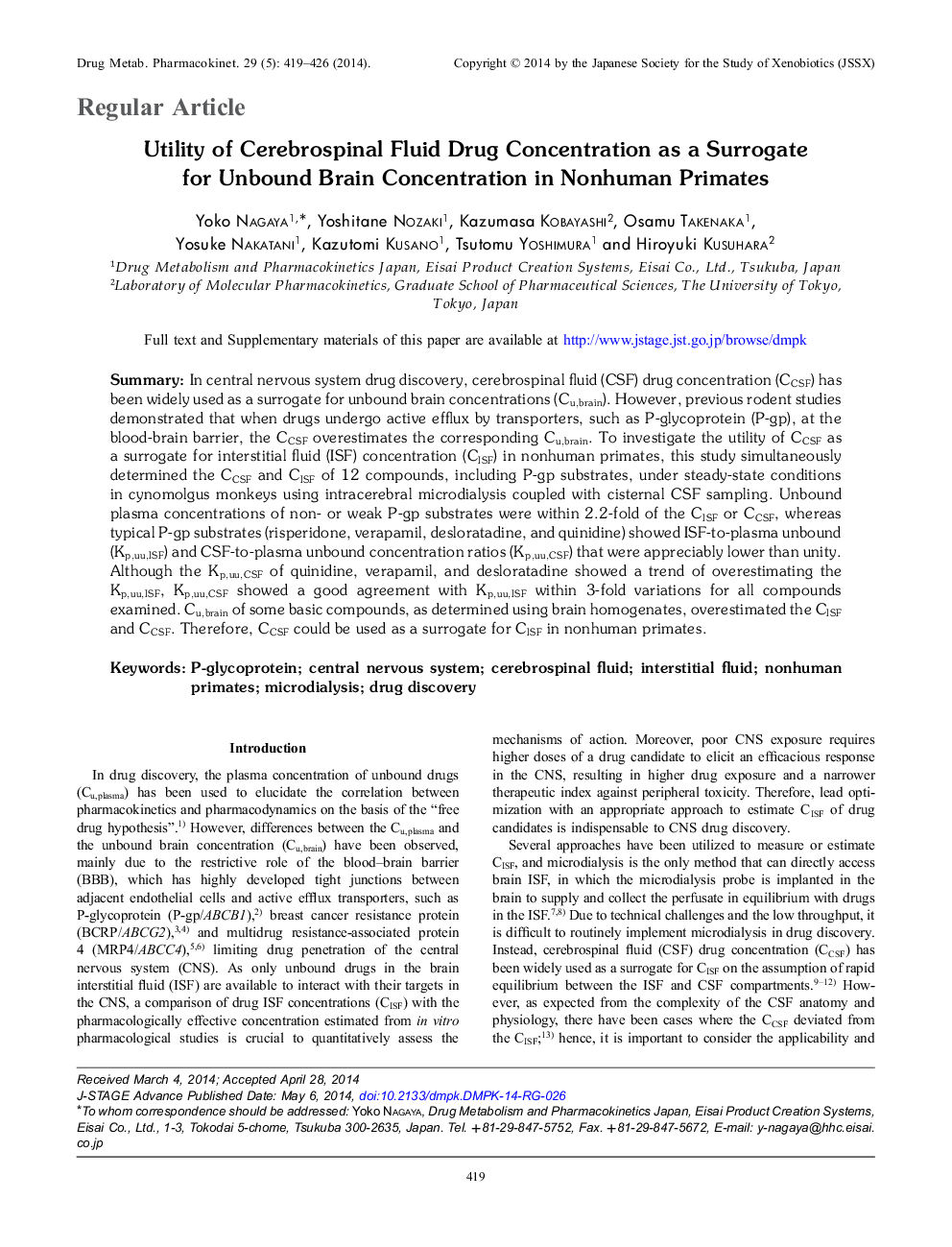| Article ID | Journal | Published Year | Pages | File Type |
|---|---|---|---|---|
| 2478799 | Drug Metabolism and Pharmacokinetics | 2014 | 8 Pages |
Abstract
In central nervous system drug discovery, cerebrospinal fluid (CSF) drug concentration (CCSF) has been widely used as a surrogate for unbound brain concentrations (Cu,brain). However, previous rodent studies demonstrated that when drugs undergo active efflux by transporters, such as P-glycoprotein (P-gp), at the blood-brain barrier, the CCSF overestimates the corresponding Cu,brain. To investigate the utility of CCSF as a surrogate for interstitial fluid (ISF) concentration (CISF) in nonhuman primates, this study simultaneously determined the CCSF and CISF of 12 compounds, including P-gp substrates, under steady-state conditions in cynomolgus monkeys using intracerebral microdialysis coupled with cisternal CSF sampling. Unbound plasma concentrations of non-or weak P-gp substrates were within 2.2-fold of the CISF or CCSF, whereas typical P-gp substrates (risperidone, verapamil, desloratadine, and quinidine) showed ISF-to-plasma unbound (Kp,uu,ISF) and CSF-to-plasma unbound concentration ratios (Kp,uu CSF) that were appreciably lower than unity. Although the Kp,uu,CSF of quinidine, verapamil, and desloratadine showed a trend of overestimating the Kp,uu,ISF, Kp,uu,csF showed a good agreement with Kp,uu,ISF within 3-fold variations for all compounds examined. Cu,brain of some basic compounds, as determined using brain homogenates, overestimated the CISF and CCSF. Therefore, CCSF could be used as a surrogate for CISF in nonhuman primates.
Keywords
Related Topics
Health Sciences
Pharmacology, Toxicology and Pharmaceutical Science
Drug Discovery
Authors
Yoko Nagaya, Yoshitane Nozaki, Kazumasa Kobayashi, Osamu Takenaka, Yosuke Nakatani, Kazutomi Kusano, Tsutomu Yoshimura, Hiroyuki Kusuhara,
